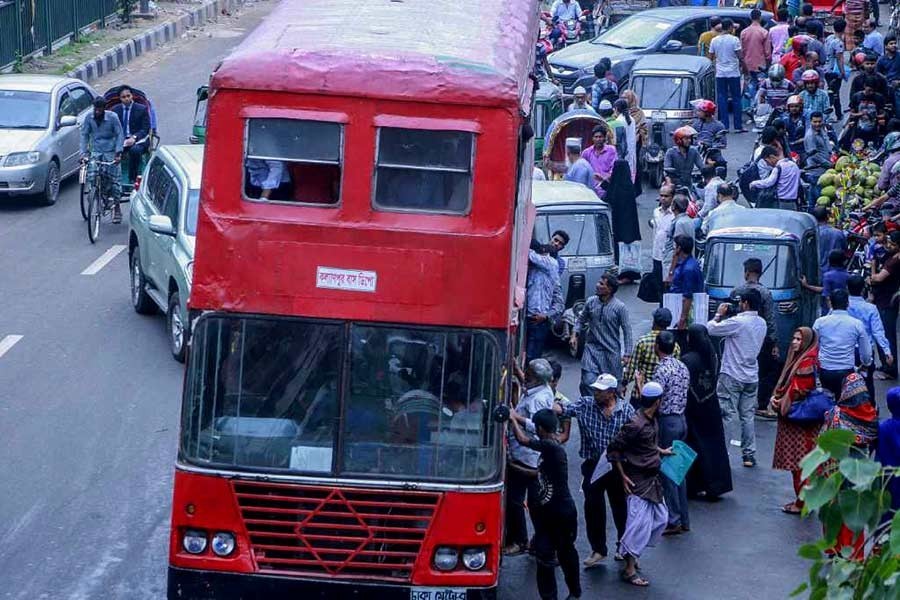
Published :
Updated :

The long awaited Road Transport Act that looked like a potential game changer in the country's transportation sector has apparently slipped into oblivion. There is no move at all to implement the Act meant to discipline the perilously unruly road transport system of the country. Although months have elapsed since the Act was passed in parliament, the rules of procedures supposedly required to make it effective are yet to be framed. There are no indications, reportedly, from relevant government agencies of any progress of work in this regard.
Following the countrywide student outrage protesting road anarchy, the Road Transport Act 2018 was passed in parliament in mid-September last year. But how far its non-implementation should be attributed to the absence of rules remains a question. Although the government's designated agency the Bangladesh Road Transport Authority (BRTA) is reportedly working on the rules in order to effectively implement the Act, there are controversies whether absence of rules is solely instrumental in rendering the Act nonfunctional. Road safety campaigners hold that absence of rules is not the roadblock to implementing the Act. They allege the government is delaying implementation of the law without any valid ground as many laws were made effective in the past without backup rules. The Road Transport Act 2018 and the Digital Security Act 2018 were passed on the same day, but the latter became effective though no rule was formulated to enforce it. Campaigners also allege that the authorities are trying to protect interests of transport owners and workers by delaying enforcement of the law-at the expense of road safety.
If this be the case, there are reasons to be worried about. In the past, it was noticed that transport workers, a formidable force to bank on by successive governments, have time and again proved to be the most law-defying group, not just in flouting basic traffic rules but even in refusing to face judicial enquiry for road accidents that may have been caused by blatant disregard for driving norms. It may be recalled that following the passing of the Act, the Bangladesh Road Transport Workers Federation observed a two-day strike to press home their eight-point demands that among others included revoking penal measures for road accidents, relaxing mandatory educational qualification for driving licence and so on. The federation also threatened with a tougher movement if the Act was not amended in line with their wishes. Although the media and the civil society reacted strongly to their dodgy ways, the government remained tentative perhaps in the hope of buying time to gradually put things in place.
But it is months already. Holding up any forward move to make the law effective clearly reflects a sense of apathy to public concern over road safety and traffic indiscipline. If the authorities are hell-bent on getting the rules of procedures set before making some of the specific sections of the Act enforceable, why are they sitting on it for so long?


 For all latest news, follow The Financial Express Google News channel.
For all latest news, follow The Financial Express Google News channel.